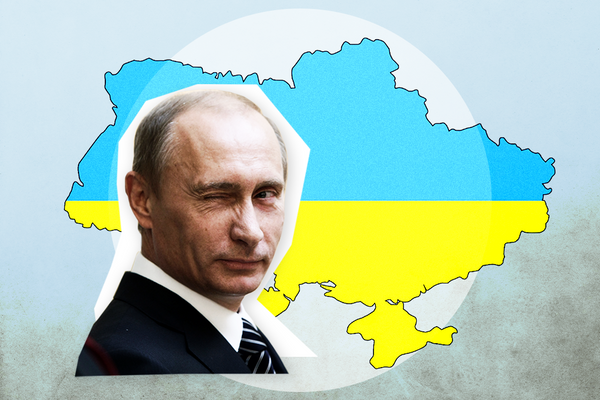Russia makes its demands. With 100,000 Russian troops at the Ukrainian border, Moscow released a bombshell list of demands for the “West” on Friday. Among other things, NATO must relinquish any right ever to expand further eastward, and must stop sending its troops or ships anywhere that could conceivably threaten Russia. What’s more, the Russians are impatient: they want the US to discuss these proposals right now. The US is happy to talk, but won’t give the Kremlin a veto over the choices that sovereign nations want to make about their own security alliances. The Ukrainians, naturally, agree, and on Monday President Volodymyr Zelenskiy will meet with his counterparts from Poland and Lithuania to emphasize the point. We’re watching to see what the US comes back with — one version of a maximalist response would look like this — and what, precisely, Russia is prepared to do if it doesn't like what it sees.
More from GZERO Media
Listen: In seven short weeks, the Trump administration has completely reshaped US foreign policy and upended trade alliances. Will China benefit from US retrenchment and increasing global uncertainty, or will its struggling economy hold it back? On the GZERO World Podcast, Bill Bishop, a China analyst and author of the Sinocism newsletter, joins Ian Bremmer for a wide-ranging conversation about China—its domestic priorities, global administration, and whether America’s retreat from global commitments is opening new doors for Beijing.
What exactly is President Trump’s view on China? On Ian Explains, Ian Bremmer breaks down Trump’s complicated views on the People’s Republic, which can be, at times, hard to pin down.
Germany drops debt brake, passes preliminary agreement to boost defense, infrastructure, and climate spending
Germany’s election-winning center-right Christian Democratic Union/Christian Social Union, led by Friedrich Merz, and the Social Democrats have reached a preliminary agreement with the Green Party on a deal to exclude defense spending from the country’s constitutional debt break and establish a dedicated $545 billion fund for infrastructure investments.
A Russian army soldier walks along a ruined street of Malaya Loknya settlement, which was recently retaken by Russia's armed forces in the course of Russia-Ukraine conflict in the Kursk region, on March 13, 2025.
The Russian leader has conditions of his own for any ceasefire with Ukraine, and he also wants a meeting with Donald Trump.
Mahmoud Khalil speaks to members of the media about the Revolt for Rafah encampment at Columbia University on June 1, 2024.
The court battle over whether the US can deport Mahmoud Khalil, the 30-year-old Palestinian-Algerian activist detained in New York last Saturday, began this week in Manhattan. Khalil, an outspoken activist for Palestinian rights at Columbia University, was arrested Saturday at his apartment in a university-owned building at Columbia University by Immigration and Customs Enforcement officers, and he is now being held in an ICE detention center in Louisiana.
An Israeli airstrike destroyed a residential building on the outskirts of Damascus on Thursday in the latest Israeli incursion into post-Assad Syria.
Germany’s government is in a state of uncertainty as the outgoing government races to push through a huge, and highly controversial, new spending package before its term ends early this spring.
On Wednesday, Environmental Protection Agency chief Lee Zeldin redefined the agency’s mission, stating that its focus is to “lower the cost of buying a car, heating a home, and running a business.”
